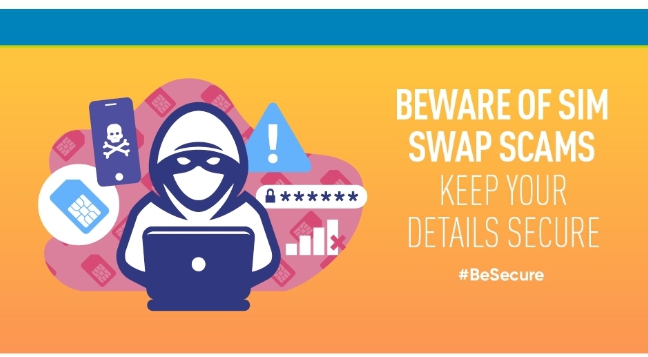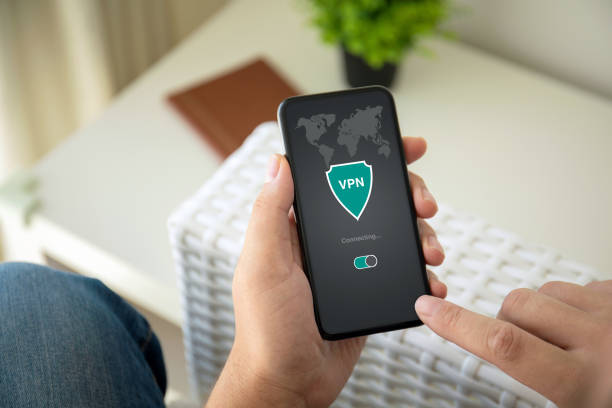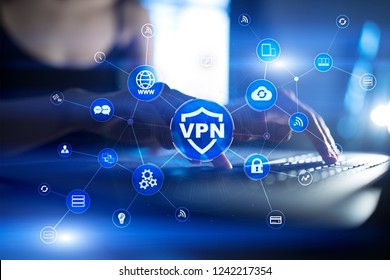Cyber security for women in Nigeria |2023|
Introduction to Cyber Security For Women in Nigeria
Welcome to our comprehensive guide on cyber security for women in Nigeria. In an increasingly digital world, where technology shapes our lives, cyber security is of paramount importance for everyone. However, for women in Nigeria, it holds even greater significance.
In this article, we’ll delve into the escalating issues of online harassment, identity theft, and various cyber threats that women face. More importantly, we’ll equip you with actionable tips to fortify your online presence and protect your digital life.
The Rise in Online Harassment, Identity Theft, and Cyber Threats
Online Harassment
Online harassment, also known as cyberbullying, is an unfortunate reality that many women in Nigeria face. It can take various forms, from hurtful comments to threats and even the spreading of personal information without consent.
According to a recent study by the Nigerian Communications Commission, a staggering 70% of women in Nigeria have experienced online harassment.
It’s a menace that knows no boundaries and can affect anyone.
Identity Theft
Your online identity is precious, and it’s under constant threat. Half of women in Nigeria have fallen victim to identity theft, where malicious actors steal your personal information to commit fraud, impersonate you, or gain unauthorized access to your accounts.
Cyber Threats
Cyber threats, including phishing attacks, malware, and social engineering tactics, continue to evolve and pose a substantial risk to your online security. Staying informed and vigilant is key to protecting yourself.
Understanding Cyber Security Challenges
Now let’s take a look at Specific Cyber Security Challenges Faced by Women in Nigeria.
- Online Harassment
- Identity Theft
- Cyber Threats
1. Online Harassment
Prevalence of Online Harassment
Online harassment has become a pervasive issue, affecting women across Nigeria. A shocking 70% of women have encountered this distressing phenomenon.
Types of Online Harassment:
The nature of online harassment varies, ranging from hurtful comments and cyberbullying to more severe threats. It can include:
1. Hateful Comments: Insults, derogatory language, and offensive remarks aimed at demeaning and hurting the victim emotionally.
2. Threats: Women often receive threats of physical harm, sexual violence, or harm to their reputation, causing severe psychological distress.
3. Non-Consensual Sharing: The non-consensual sharing of personal information, images, or videos is another disturbing form of harassment.
These actions can result in severe emotional and reputational damage.
2. Identity Theft
Impact on Women’s Lives
Identity theft is a menace that profoundly affects the lives of women in Nigeria. When personal information is stolen, the consequences can be financially and emotionally devastating.
Victims often find themselves dealing with:
- Financial Loss: Criminals may use stolen information for fraudulent transactions, leaving victims in dire financial straits.
- Emotional Distress: The emotional toll of identity theft is significant. Victims often experience anxiety, stress, and a sense of violation.
- Reputation Damage: Identity theft can tarnish a woman’s reputation, making her vulnerable to various forms of harassment and discrimination.
Related: How AURA Financial Fraud Protection Can Protect You from Identity Theft.
3. Cyber Threats
Evolving Threat Landscape
Cyber threats continue to evolve, becoming more sophisticated and targeted. Women in Nigeria face a range of cyber threats, including:
- Phishing Attacks: Cybercriminals employ deceptive emails and messages to trick victims into revealing personal information or clicking on malicious links.
- Malware and Ransomware: Malicious software can infect devices, steal data, or hold it hostage, demanding a ransom for its release.
- Social Engineering Tactics: Scammers use psychological manipulation to trick individuals into divulging sensitive information or performing actions against their best interests.
These evolving cyber threats require constant vigilance and adaptation to new security measures to stay protected.
Understanding these cyber security challenges is the first step towards addressing them effectively.
By staying informed and taking proactive measures, women in Nigeria can protect themselves against online harassment, identity theft, and cyber threats, ensuring a safer digital environment for all.
Online Harassment: Protecting Your Digital Space
Tips to Prevent and Respond to Online Harassment
Online harassment can be distressing, but there are proactive steps you can take to protect yourself and respond effectively.
1. Strengthening Social Media Privacy Settings
Maintaining strict control over your social media presence is crucial in preventing online harassment. Here’s how:
- Review Privacy Settings: Start by auditing your privacy settings on platforms like Facebook, Twitter, Instagram, and LinkedIn. Make sure you understand who can see your posts and personal information. Limit this to trusted friends and connections.
- Customize Sharing: Use platform-specific privacy options to customize the audience for each post. Share personal details only with people you trust.
- Avoid Location Sharing: Refrain from sharing your precise location on social media. This can prevent stalkers from tracking your movements.
- Review Friend Requests: Be cautious about accepting friend requests from strangers. Ensure that you know the person or have mutual connections.
2. Identifying and Blocking Harassers
When dealing with online harassers, swift action is essential:
- Recognize Harassment: Familiarize yourself with common signs of online harassment, such as hateful comments, threats, and persistent unwanted messages.
- Block the Offender: Don’t hesitate to block individuals engaged in harassment. Blocking prevents them from accessing your profile and contacting you further.
- Collect Evidence: If harassment escalates, document the interactions by taking screenshots. This evidence can be helpful if you decide to report the harasser.
3. Reporting Harassment to Authorities
If you’re facing severe online harassment, it’s important to involve the authorities:
- Local Authorities: Contact your local police if you feel threatened or harassed online. Share the evidence you’ve collected, and they can guide you on the next steps.
- Online Platform Reporting: All major social media platforms have reporting mechanisms for harassment. Use these tools to report abusive behavior. They can take action against the harasser, such as suspending their account.
Advice on Maintaining a Positive Online Presence
Creating a positive online presence is not only about preventing harassment but also about fostering a supportive online community.
Here’s how to maintain a positive digital space:
1. Promote Positivity:
- Engage Respectfully: In online discussions and debates, maintain a respectful tone even when you disagree with others.
- Share Uplifting Content: Post content that inspires and uplifts others. Share success stories, helpful tips, or motivating quotes.
- Support Others: Offer words of encouragement to those facing online harassment or cyber threats. Show solidarity and empathy.
2. Digital Etiquette:
- Fact-Check Before Sharing: Verify the accuracy of information before sharing it. Misinformation can contribute to online negativity.
- Avoid Trolling: Refrain from trolling or engaging in online arguments that escalate tension. Focus on constructive conversations.
3. Online Communities:
- Join Supportive Groups: Find online communities that share your interests and values. These groups can offer a safe space for discussions.
- Moderate Discussions: If you run an online community or group, implement clear guidelines for respectful communication. Enforce these rules consistently.
4. Educate Yourself:
- Stay Informed: Continuously educate yourself about online safety and cyber threats. Knowledge is your best defense.
- Encourage Others: Share your knowledge and tips with friends and family. Empower them to protect themselves online as well.
By following these guidelines and maintaining a positive online presence, you not only protect yourself from harassment but also contribute to a healthier and safer digital environment for all users.
Remember, you have the power to shape your online experience and make it a positive one. Stay safe, stay positive, and enjoy your online interactions to the fullest.
Identity Theft: Safeguarding Your Personal Information
Strategies to Prevent Identity Theft
Identity theft is a serious threat, but there are proactive measures you can take to protect yourself:
1. Strong Password Creation and Management
- Complex Passwords: Create unique, complex passwords for each online account. Use a combination of upper and lower-case letters, numbers, and symbols. Avoid easily guessable information like your name or birthdate.
- Password Manager: Consider using a reputable password manager to generate and store your passwords securely. It eliminates the need to remember multiple complex passwords.
2. Use of Two-Factor Authentication (2FA)
Whenever possible, activate two-factor authentication for your online accounts. This adds an extra layer of security by requiring you to enter a one-time code sent to your mobile device or email.
3. Regularly Monitoring Financial and Online Accounts
Periodically review your bank and credit card statements for any suspicious transactions. Early detection can minimize the damage caused by identity theft.
Steps to Take If Identity Theft Occurs
If you suspect that your identity has been stolen, here are immediate steps to take:
- Contact Authorities: Report the identity theft to your local law enforcement agency. They can guide you on how to proceed and may open an investigation.
- Notify Financial Institutions: Contact your bank and credit card companies to report the theft. They can help you secure your accounts and investigate any fraudulent transactions.
- Credit Bureaus: Inform the credit bureaus (Equifax, Experian, and TransUnion) about the identity theft. Request a fraud alert or credit freeze to prevent further unauthorized activity.
- Change Passwords: Change the passwords for your compromised accounts and enable 2FA wherever possible.
- Document Everything: Keep a detailed record of all communication related to the identity theft, including dates, names of individuals you spoke with, and reference numbers.
Cyber Threats: Staying Informed and Protected
Awareness of Common Cyber Threats
Being aware of the most prevalent cyber threats is essential to staying safe online:
1. Phishing Attacks
- Recognize Phishing: Learn to spot phishing emails and messages. Look for suspicious sender addresses, misspellings, and unsolicited requests for personal information.
- Verify Links: Before clicking on any links in emails or messages, hover your cursor over them to preview the URL. Be cautious if the URL seems unrelated to the message.
2. Malware and Ransomware
- Download Wisely: Only download software and files from trusted sources. Be skeptical of free downloads from unfamiliar websites.
- Backup Data: Regularly back up your important data to an external drive or cloud storage. This can help you recover if your data is compromised by malware.
3. Social Engineering Tactics
- Be Skeptical: Be cautious when sharing personal information online or over the phone, especially with unknown individuals or organizations.
- Verify Requests: If someone requests sensitive information or funds, verify their identity independently. Don’t rely solely on the information provided by the requester.
Educate on Safe Online Practices
Empower yourself and others with safe online practices:
1. Avoiding Suspicious Links and Emails
- Think Before You Click: When in doubt, don’t click on links or open email attachments, especially if they come from unknown or unexpected sources.
- Email Filters: Enable email filters to automatically detect and divert potentially malicious emails to your spam folder.
2. Regular Software and System Updates
- Stay Updated: Keep your operating system, software, and antivirus programs up to date. Updates often include patches to address vulnerabilities.
3. Secure Wi-Fi Usage
- Secure Your Network: Protect your Wi-Fi network with a strong password. Avoid using easily guessable passwords like “password123.”
- Public Wi-Fi: Exercise caution when using public Wi-Fi networks, especially for sensitive transactions. Consider using a virtual private network (VPN) for added security.
- By following these precautions and educating yourself and others about cyber threats, you’ll be better equipped to navigate the digital landscape securely.
Cyber Security for Women in Specific Settings
In the ever-evolving digital landscape of Nigeria, women across various settings face unique cyber security challenges. Let’s delve into these settings and explore how to navigate them safely.
Women Entrepreneurs in Nigeria
1. The Importance of Securing Business Data
Running a business in Nigeria, as anywhere else, involves handling sensitive data. Protecting your business data is not just a preference; it’s a necessity:
- Data Security Awareness: Ensure that you and your team are well-informed about the importance of data security. Everyone should understand the potential consequences of a data breach.
- Customer Trust: Secure business data to maintain trust with your customers. They rely on you to protect their information.
2. Business-Specific Cyber Security Measures
- Firewalls and Antivirus: Invest in robust firewall and antivirus solutions to shield your business from malware and cyber attacks.
- Regular Backups: Regularly back up your business data. In case of a cyber incident, you’ll have a secure copy to restore from.
- Employee Training: Train your employees in cyber security best practices. They should be aware of the risks and how to spot potential threats.
Women in the Workplace in Nigeria
1. Balancing Productivity and Security
Workplace productivity should go hand in hand with security:
- Corporate Devices: If you’re using company-issued devices, ensure they have up-to-date security software and follow corporate guidelines.
- Remote Work: If remote work is part of your job, establish a secure home office environment. Secure your home Wi-Fi network and use a VPN when connecting to company resources.
2. Corporate Cyber Security Policies and Training
- Adherence to Policies: Familiarize yourself with your company’s cyber security policies and follow them rigorously. These policies are designed to protect both you and the organization.
- Training Programs: Attend any cyber security training programs your workplace offers. Stay up-to-date on the latest threats and how to mitigate them.
Women in Education in Nigeria
1. Protecting Student and Faculty Data
In the education sector, data protection is vital for both students and faculty:
- Secure Data Storage: Schools and universities should employ secure data storage and transmission methods to safeguard student records and sensitive research data.
- Access Control: Implement strict access control measures to ensure that only authorized individuals can access sensitive data.
2. Online Learning Security Considerations
- Secure Online Platforms: If you’re using online learning platforms, ensure that they prioritize security. Look for platforms that encrypt data and have strong authentication measures.
- Student Awareness: Educate students about online safety. They should know how to protect their data and report any suspicious online activity.
Women in Government in Nigeria
1. Addressing Cyber Threats to Government Officials
Government officials in Nigeria are frequent targets of cyber attacks and here is how to protect yourself and agency:
- Security Protocols: Government agencies should have robust security protocols in place. Ensure that you follow them diligently.
- Secure Communication: Use secure channels for sensitive government communications. Avoid discussing classified matters on unsecured platforms.
2. National Security Implications
- Protecting National Interests: Recognize that the cyber security of government officials has direct implications for national security. Comply with security measures to safeguard Nigeria’s interests.
- Collaborative Efforts: Government agencies should work together to share information on cyber threats and collectively strengthen national cyber security.
In all these settings, collaboration, education, and vigilance are key.
Final Thoughts
In the digital age, cyber security isn’t just a buzzword; it’s a necessity. For women in Nigeria, the importance of cyber security cannot be overstated.
Let’s recap why it’s crucial, highlight key takeaways, and encourage you to remain vigilant online.
The Significance of Cyber Security for Women in Nigeria
Cyber security is paramount for women in Nigeria due to the rising tide of online threats:
- Online Harassment: With 70% of women in Nigeria experiencing online harassment, securing your digital presence is crucial for emotional well-being and personal safety.
- Identity Theft: With personal information theft affecting 50% of women, guarding your identity is essential to prevent financial loss and personal harm.
- Cyber Threats: The ever-evolving landscape of cyber threats requires continuous vigilance. Being informed and prepared is your best defense.
Key Takeaways and Actionable Steps
Here are some key takeaways and actionable steps to enhance your cyber security:
- Strong Passwords: Create and manage strong, unique passwords for all your accounts. Utilize a password manager for added convenience.
- Two-Factor Authentication (2FA): Enable 2FA wherever possible to add an extra layer of security to your online accounts.
- Regular Monitoring: Keep an eye on your financial and online accounts. Detecting irregularities early can mitigate damage.
- Phishing Awareness: Be vigilant when it comes to suspicious emails and links. Verify the authenticity of sources before clicking.
- Malware Protection: Protect your devices with antivirus software and avoid downloading files from untrusted sources.
- Online Etiquette: Promote positivity in your online interactions. Supportive and respectful communication fosters a safer digital environment.
- Secure Wi-Fi Usage: Ensure the security of your Wi-Fi network, especially when dealing with sensitive data. Consider using a VPN service like SurfShark for added privacy and security.

Conclusion
The digital world can be a wonderful place, but it’s not without risks. Stay informed about the latest cyber threats and cyber security best practices.
Knowledge is your strongest weapon against online threats.
Cyber security is not just about protecting yourself; it’s about safeguarding your personal and financial well-being.
Please encourage others in your network to follow these principles and create a safer digital community for all.
Together, we can make the internet a place where women in Nigeria can thrive, learn, and connect securely.
Remember, you have the power to protect yourself online, and the benefits of a safer digital world are immeasurable. Stay secure, stay informed, and stay empowered.









![The Future of Digital Privacy and How Surfshark is Leading the Way [2023]](https://gotocyberprotect.com/wp-content/uploads/2023/10/kruger-park-accommodation-st-the-outpost-590x390-1.jpg)
